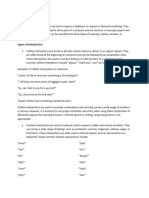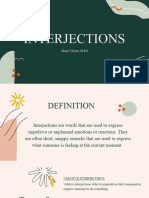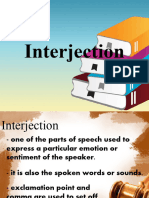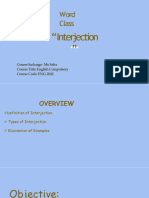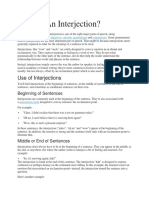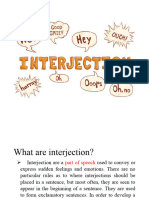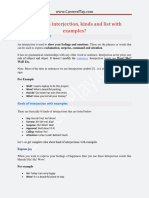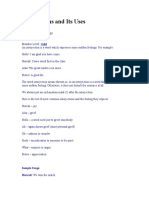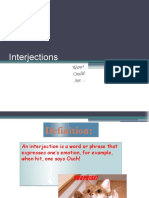0% found this document useful (0 votes)
13 views6 pagesInterjection Types
Interjections are words expressing strong emotions and are not grammatically related to the rest of the sentence. They are categorized into three types: volatile interjections, which express sudden feelings; emotive interjections, which convey emotions and typically require a response; and cognitive interjections, which express thoughts and also usually need a response. Examples include 'ouch' for volatile, 'bravo' for emotive, and 'hmm' for cognitive interjections.
Uploaded by
syedarehmat16Copyright
© © All Rights Reserved
We take content rights seriously. If you suspect this is your content, claim it here.
Available Formats
Download as PDF, TXT or read online on Scribd
0% found this document useful (0 votes)
13 views6 pagesInterjection Types
Interjections are words expressing strong emotions and are not grammatically related to the rest of the sentence. They are categorized into three types: volatile interjections, which express sudden feelings; emotive interjections, which convey emotions and typically require a response; and cognitive interjections, which express thoughts and also usually need a response. Examples include 'ouch' for volatile, 'bravo' for emotive, and 'hmm' for cognitive interjections.
Uploaded by
syedarehmat16Copyright
© © All Rights Reserved
We take content rights seriously. If you suspect this is your content, claim it here.
Available Formats
Download as PDF, TXT or read online on Scribd
/ 6


